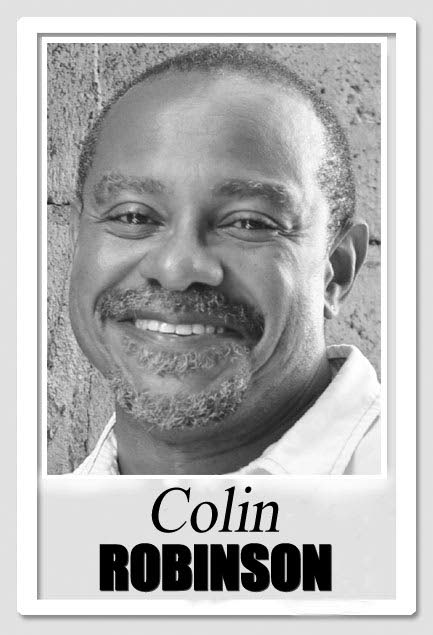Proof of address

I laundered $1,700 this week.
Serious! Come arrest me, nah.
Actually I could have turned myself in. I was at a meeting the day before and after on nonprofits washing terrorist money, hobnobbing with the heads of the FIU and Anti-Terrorism Unit. It’s a small country! Whose size, development and lingering orderliness give us an opportunity to create people-centred policy, as policymakers aren’t hopelessly distant from small people and everyday life.
I waited over two hours at a bank, amid the horde lined up to swap old paper money for shiny plastic notes, whose cost to taxpayers seems some sort of state secret those we elected need to withhold from us.
The minimum-wage security guard in front me, on break from her shift, was counting her Christmas-season earnings decline with every minute in the line. Banks aren’t open when she’s off work. She’d stood in even longer banklines the day before for a different transaction. (This bank – and I’m not aware of any other – hasn’t thought to simply separate people, like me, there for routine business from the influx of withdrawn-banknote-redeemers.)
After an hour and a half, her counterpart at the bank, another woman, who viscerally gets this cost, came and skipped her to the head of the line. No one objected; though I imagine she’d get punished for that act of empathy if I shamed the bank by name.
Guardlady lost maybe $26.25 waiting, saved $17.50 – sums that mean far less to many others in the line.
Or not. A lawyer scoffed at my story: his old aunt asked him to line up to change a few thousand for her; no need to, he’d dispense with that cash in normal Christmas spending.
The visual contrasts and similarities were striking between these two women in their demeaning-by-design, ill-fitting uniforms and three unfashionably dressed young Indian men, each with a moxy lunchbag once full of cash, who spent most of the time I did in line at one window, chatting together, while someone at the bank was likely figuring out what to do with them.
Behind me was a woman teaching in the East. She passed some of the time chatting with a colleague who’d been ahead of us in line. He’d come from Arima to Port of Spain, not on his own business, but to support an unwell colleague, sharing turns waiting in line.
These are the differential costs to the public – and the economy – of the $100-note demonetisation measure government leaders have forced on the nation over the coming two weeks, as the Finance Minister openly admits, without having figured out, despite four years’ planning, how to cross several Is or dot a number of Ts. It’s an anti-laundering initiative they’ve half sold to the large number of us with bank accounts, credit cards, cars, flexible time, whom it shouldn’t inconvenience terribly.
Though, in my experience, it actually has. I’d avoided joining the bandwagon of naysayers for whom no authority ever gets the benefit of the doubt, rolling my eyes at the Maha Sabha’s latest lawsuit – even posting on Facebook congratulating one bank for customer responsive measures and effective communication about them.
Imagine that, eh. Me who lives to cuss and carry on in banking halls at the outrage of their profitability and utter disregard for customer orientation.
Ah, but soon enough I got to do the usual. My two hours finally got me to the head of the line. And all my reasonableness vanished.
First I got told the department for the transaction I’d arrived within banking hours to complete was now closed – too bad I’d waited so long. I couldn’t get foreign currency for my trip the next day.
Two relatives abroad had given me some small money – one eight $100 bills, another nine – they said I could either spend here before they lost value or change and bring back for them when I travelled. So I decided, let me at least do that.
I handed the teller the 17 notes wordlessly. She knew why we were all here. She looked up, asking politely what I wanted to do.
Swap them.
You can deposit them to an account and withdraw cash in new notes; or if you want to swap them you must provide a utility bill as proof of address. Regardless of amount. And ID.
And no driver’s permit that has an address (where Government is going to mail traffic tickets that will be legally delivered) – only a passport or an EBC card.
Where were the clear public notices or media reports explaining this stupidity to small people? Homeless people? It’s in the Bankers Association ad, she assured. I used an O in my social-media expletive; no polite British/American U would do.
I deposited my relatives’ paper notes in my nonprofit’s business account, and took out polymer cash. That is the definition of money laundering.
And I’m looking to join Vijay Maharaj’s lawsuit.


Comments
"Proof of address"